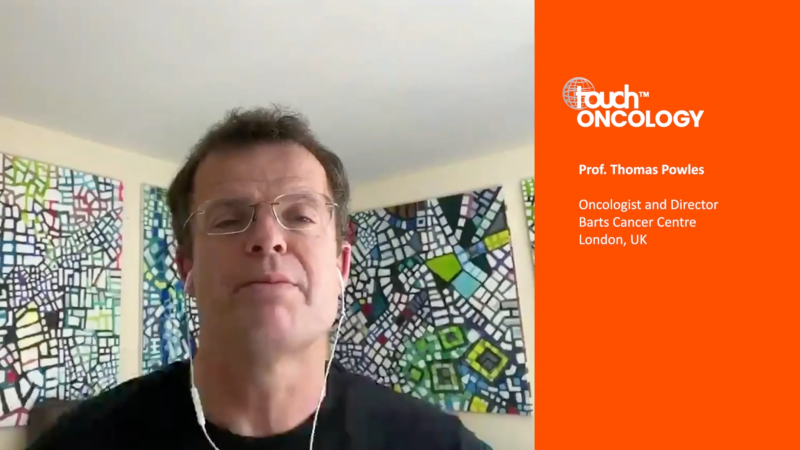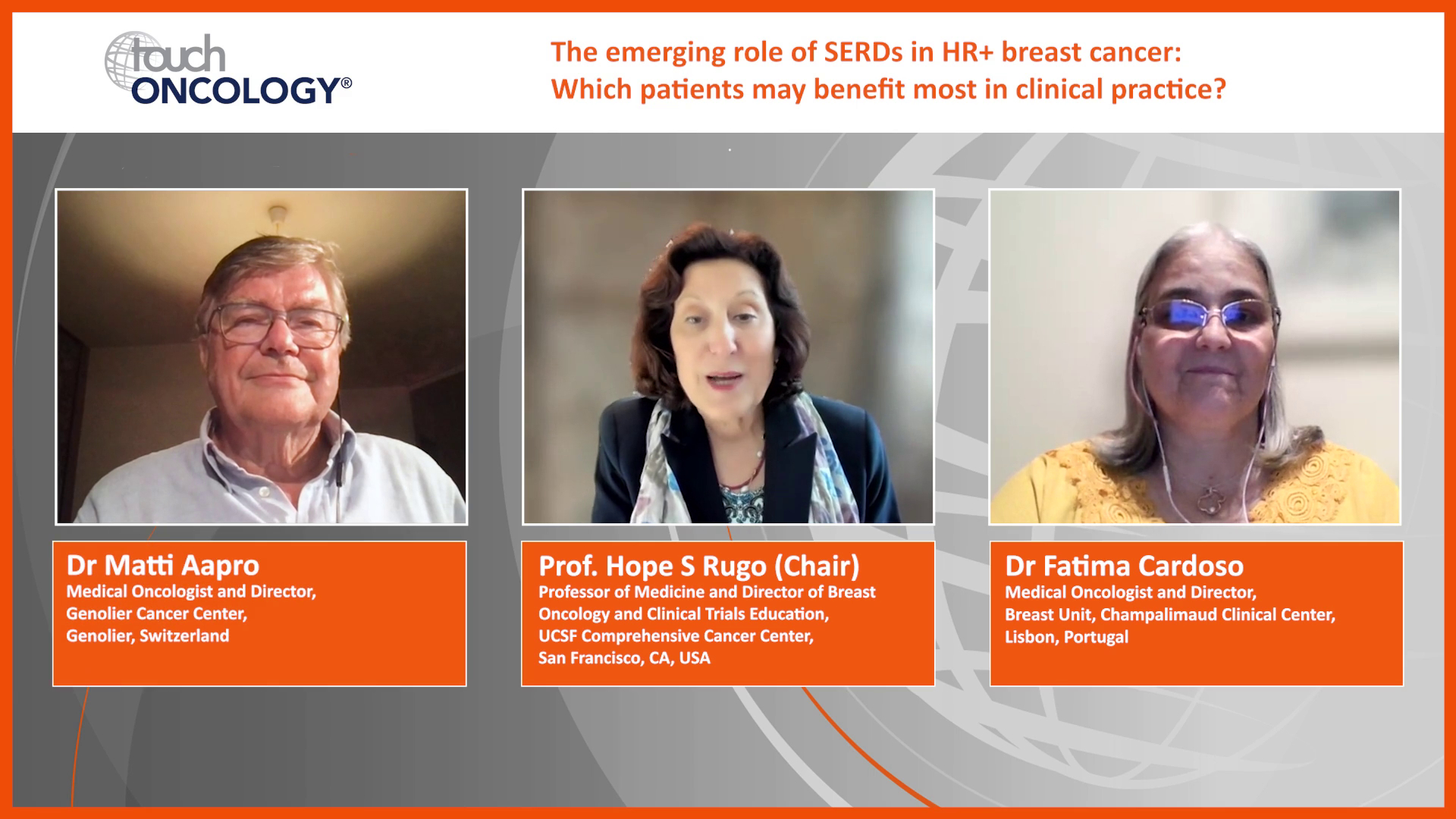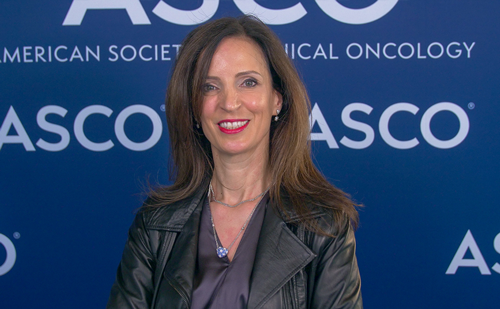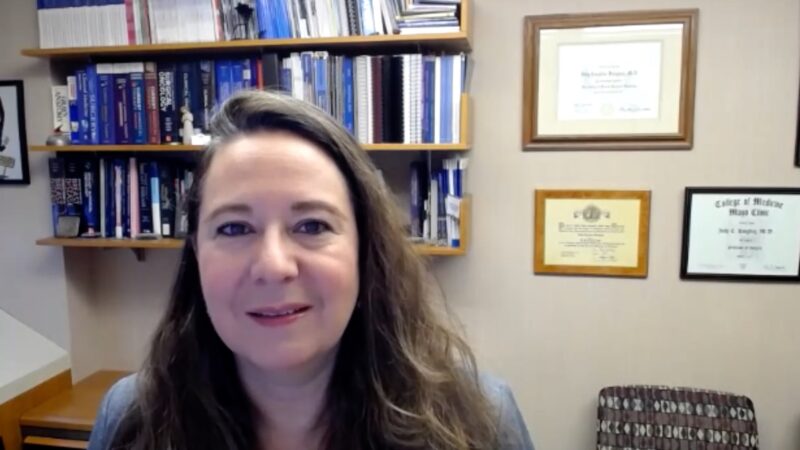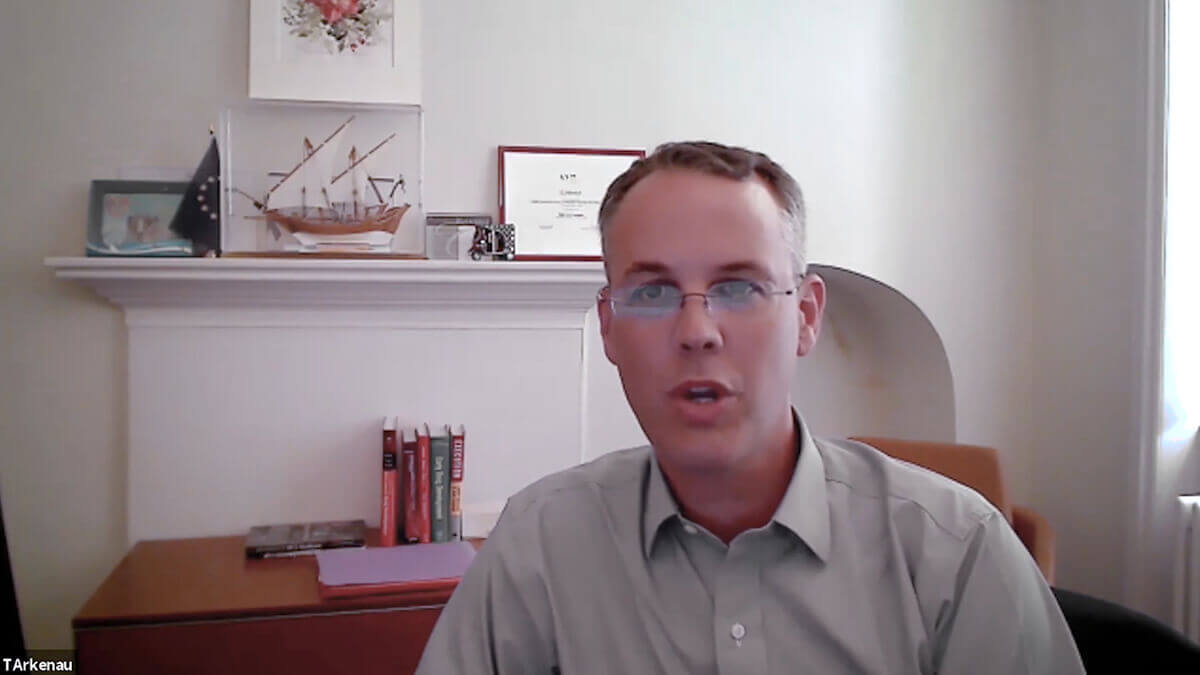Tutorial
This icon indicates there is a poll question. Click it when you see it to interact with your peers.
Tutorial
This icon indicates there is a poll question. Click it when you see it to interact with your peers.
Tutorial
This icon indicates there is a poll question. Click it when you see it to interact with your peers.
touchEXPERT FOCUS
 Three experts answer questions on a specific theme offering practical insights drawn from daily practice.
Close
Three experts answer questions on a specific theme offering practical insights drawn from daily practice.
Close
 Three experts answer questions on a specific theme offering practical insights drawn from daily practice.
Close
Three experts answer questions on a specific theme offering practical insights drawn from daily practice.
Close
Multidisciplinary management of TNBC: Integrating immunotherapies for early and metastatic disease
Learning Objectives
After watching this activity, participants should be better able to:
- Review the latest data and guideline recommendations for treating early-stage TNBC with immunotherapy approaches and their implications for clinical practice
- Summarize considerations for treating metastatic TNBC with immunotherapy approaches, including the latest data, guideline recommendations and the application of biomarker testing
- Evaluate practical strategies for maximizing the benefit of immunotherapy approaches in TNBC with effective management of immune-related adverse events and multidisciplinary, patient-centred care
Overview
In these short interviews, three renowned experts in breast cancer (BC) share their insights on the latest data and guideline recommendations for using immunotherapy (IO) in early-stage and metastatic triple-negative BC (TNBC), and share strategies for maximizing the benefit of IO approaches through effective management of immune-related adverse events and multidisciplinary, patient-centred care.
This activity is jointly provided by USF Health and touchIME.
Target Audience
This activity has been designed to meet the educational needs of medical oncologists, surgical oncologists, physician assistants, oncology nurses, nurse practitioners and nurse navigators.
USF Accreditation
Disclosures
USF Health adheres to the Standards for Integrity and Independence in Accredited Continuing Education. All individuals in a position to influence content have disclosed to USF Health any financial relationship with an ineligible organization. USF Health has reviewed and mitigated all relevant financial relationships related to the content of the activity. The relevant relationships are listed below. All individuals not listed have no relevant financial relationships.
Faculty
Prof. Sherko Kummel discloses: Advisory board/panel fees from Agendia, Amgen, AstraZeneca, Daiichi Sankyo, Exact Science, Gilead Sciences, Lilly, MSD, Novartis, Pfizer, pfm medical, Roche, Seagen and Sonoscape. Consultancy fees from Lilly, MSD and Stryker. Speakers’ bureau fees from Agendia, Amgen, AstraZeneca, Daiichi Sankyo, Exact Science, Gilead Sciences, Hologig, Lilly, MSD, Novartis, Pfizer, pfm medical, PINKI Pharma, Roche, Seagen, Somatex and Stemline. Data safety monitoring fees from Agendia, Amgen, AstraZeneca, Daiichi Sankyo, Exact Science, Gilead Sciences, Lilly, MSD, Novartis, Pfizer, pfm medical, Roche, Seagen and Sonoscape. Other fees from Arbeitsgemeinschaft Gynäkologische Onkologie (AGO) and WSG.
Prof. Rebecca Dent discloses: Advisory board or panel feels from AstraZeneca, Daiichi Sankyo, Eisai, Eli Lilly & Company, Genentech, Gilead Sciences, MSD, Novartis, Pfizer and Roche. Grants/research support from AstraZeneca and Roche.
Prof. Peter Schmid discloses: Consultancy fees from AstraZeneca, Bayer, Boehringer Ingelheim, Celgene, Eisai, Merck, Novartis, Pfizer, Puma and Roche. Grants/research support from Astellas, AstraZeneca, Genentech, Medivation, Merck, Novartis, Oncogenex and Roche.
Content Reviewer
Danielle Walker, DNP, APRN, AGNP-C has no financial interests/relationships or affiliations in relation to this activity.
touchIME Medical Contributor
Katrina Lester has no financial interests/relationships or affiliations in relation to this activity.
USF Health Office of Continuing Professional Development and touchIME staff have no financial interests/relationships or affiliations in relation to this activity.
Requirements for Successful Completion
In order to receive credit for this activity, participants must review the content and complete the post-test and evaluation form. Statements of credit are awarded upon successful completion of the post-test and evaluation form.
If you have questions regarding credit please contact cpdsupport@usf.edu.
Accreditations
Physicians
This activity has been planned and implemented in accordance with the accreditation requirements and policies of the Accreditation Council for Continuing Medical Education (ACCME) through a joint providership of USF Health and touchIME. USF Health is accredited by the ACCME to provide continuing medical education for physicians.
USF Health designates this enduring material for a maximum of 0.75 AMA PRA Category 1 CreditTM. Physicians should claim only the credit commensurate with the extent of their participation in the activity.
Advanced Practice Providers
Physician Assistants may claim a maximum of 0.75 Category 1 credits for completing this activity. NCCPA accepts AMA PRA Category 1 CreditTM from organizations accredited by ACCME or a recognized state medical society.
The AANPCP accepts certificates of participation for educational activities approved for AMA PRA Category 1 CreditTM by ACCME-accredited providers. APRNs who participate will receive a certificate of completion commensurate with the extent of their participation.
Date of original release: 25 June 2025. Date credits expire: 25 June 2026.
If you have any questions regarding credit please contact cpdsupport@usf.edu.
Nurses
USF Health is accredited as a provider of nursing continuing professional development by the American Nurses Credentialing Center’s Commission on Accreditation.
A maximum of 0.75 contact hour(s) may be earned by learners who successfully complete this continuing professional development activity. USF Health, the accredited provider, acknowledges touchIME as the joint provider in the planning and execution of this CNE activity.
This activity is awarded 0.75 ANCC pharmacotherapeutic contact hour.
Date of original release: 25 June 2025. Date credits expire: 25 June 2026.
If you have any questions regarding credit please contact cpdsupport@usf.edu.
EBAC® Accreditation
touchIME is an EBAC® accredited provider since 2023.
This program is accredited by the European Board for Accreditation of Continuing Education for Health Professionals (EBAC®) for 49 minutes of effective education time.
EBAC® holds an agreement on mutual recognition of substantive equivalency with the US Accreditation Council for CME (ACCME) and the Royal College of Physicians and Surgeons of Canada, respectively.
Through an agreement between the European Board for Accreditation of Continuing Education for Health Professionals (EBAC®) and the American Medical Association, physicians may convert EBAC® External CME credits to AMA PRA Category 1 Credits™. Information on the process to convert EBAC® credit to AMA credit can be found on the AMA website. Other healthcare professionals may obtain from the AMA a certificate of having participated in an activity eligible for conversion of credit to AMA PRA Category 1 Credit™.
EBAC® is a member of the International Academy for CPD Accreditation (IACPDA) and a partner member of the International Association of Medical Regulatory Authorities (IAMRA).
Faculty Disclosure Statement / Conflict of Interest Policy
In compliance with EBAC® guidelines, all speakers/ chairpersons participating in this programme have disclosed or indicated potential conflicts of interest which might cause a bias in the presentations. The Organizing Committee/Course Director is responsible for ensuring that all potential conflicts of interest relevant to the event have been mitigated and declared to the audience prior to the CME activities.
Requirements for Successful Completion
Certificates of Completion may be awarded upon successful completion of the post-test and evaluation form. If you have completed one hour or more of effective education through EBAC® accredited CE activities, please contact us at accreditation@touchime.org to receive your EBAC® CE credit certificate. EBAC® grants 1 CE credit for every hour of education completed.
Date of original release: 25 June 2025. Date credits expire: 25 June 2027.
Time to complete: 49 minutes
If you have any questions regarding the EBAC® credits, please contact accreditation@touchime.org
To obtain the CE/CME credit(s) from this activity, please complete this post-activity test.
Claim CreditYou may also be interested in...

REGISTER NOW FOR FREE ACCESS TO
- 1000+ topical and insightful peer-reviewed journal articles
- 100+ hours of bite-sized congress highlights
- 10 major therapy areas packed with the latest scientific advances
- 150+ specialties offering learn-on-the-go medical education
- + Concise email updates and newsletters so you never miss out

Log into your Touch Account
Earn and track your CME credits on the go, save articles for later, and follow the latest congress coverage.
Sign up with an Email
Or use a .
This Functionality is for
Members Only
Explore the latest in medical education and stay current in your field. Create a free account to track your learning.









